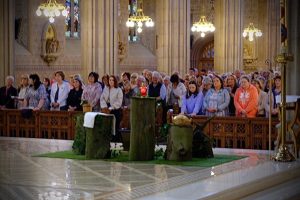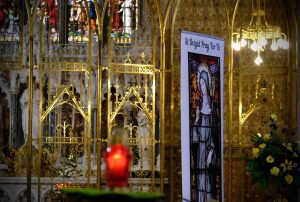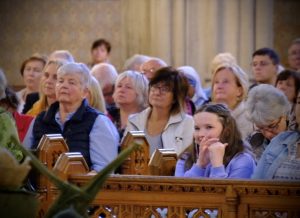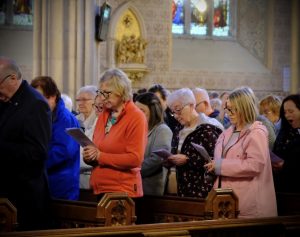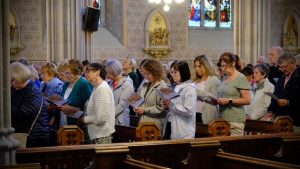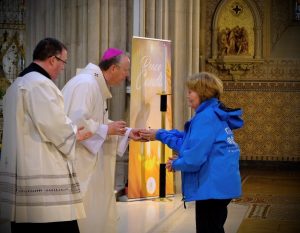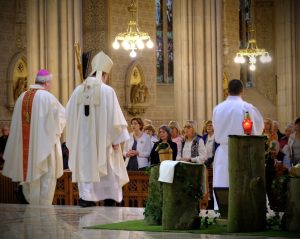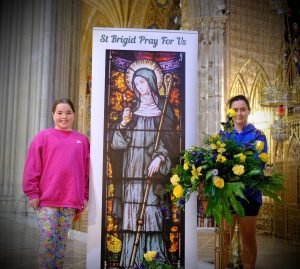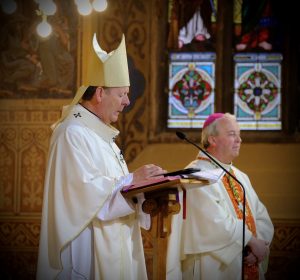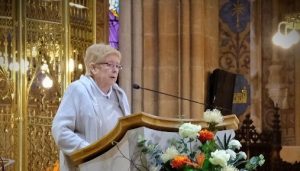Archdiocese of Armagh Hosts Seminar as Irish Catholic Bishops’ issue a pastoral letter on immigration: ‘A Hundred Thousand Welcomes?’
On 12th October, the Archdiocese of Armagh, in conjunction with Embrace NI, hosted a significant gathering at the Drumcree Pastoral Centre to address the pressing issue of migration. This gathering, aligning with the Irish Catholic Bishops’ release of their pastoral letter, “A Hundred Thousand Welcomes?”, brought together people from across Northern Ireland to reflect on the Christian call to welcome migrants and embrace the stranger.
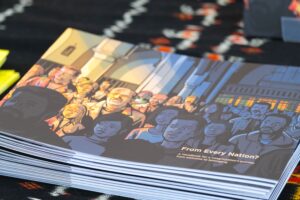 Archbishop Eamon Martin opened the gathering, referenced both the Gospel imperative to welcome the stranger and Pope Francis’ consistent call for compassion and inclusion. This event built upon the Irish Catholic Bishops’ pastoral letter which emphasises that Ireland, with its rich history of migration, has a moral duty to extend the tradition of céad míle fáilte (a hundred thousand welcomes) to those arriving in search of safety and a better life.
Archbishop Eamon Martin opened the gathering, referenced both the Gospel imperative to welcome the stranger and Pope Francis’ consistent call for compassion and inclusion. This event built upon the Irish Catholic Bishops’ pastoral letter which emphasises that Ireland, with its rich history of migration, has a moral duty to extend the tradition of céad míle fáilte (a hundred thousand welcomes) to those arriving in search of safety and a better life.
During the plenary session, participants explored key themes such as the role of hospitality in Christian life, the importance of cultural understanding, and the necessity of collaboration across Churches to support migrants. Small yet powerful gestures—such as offering coffee after Mass, incorporating multilingual prayers, and fostering intercultural events—were highlighted as ways to create spaces of belonging for newcomers.
The personal testimonies of migrants, those working in the field of accompanying migrants and others attending the session underscored the challenges faced, which includes language barriers, housing, and cultural integration. The event also acknowledged the need for better resources and support structures, such as schools and community organisations, to aid in the integration of migrants. An important takeaway was the idea of developing a Ministry of Welcome, where clergy and laypeople work together to create a warm and inviting atmosphere within parishes that fosters belonging.
A call to action concluded the event, with parishes encouraged to audit their current efforts in welcoming migrants and to collaborate with other denominations and organisations, such as St. Vincent de Paul, to support integration efforts.
In concluding the gathering participants added to the rich dialogue by asking for God’s guidance in building a more welcoming, compassionate Church and society for all, especially those seeking refuge and new beginnings.
For more information on the Irish Bishops’ pastoral letter A Hundred Thousand Welcomes? Please CLICK HERE
Embracing the Stranger Seminar,12th October 2024, Drumcree Pastoral Centre, Portadown.
Representatives from parishes and diocese attended a seminar yesterday at Drumcree Pastoral Centre in Portadown entitled: Embracing the Stranger, Challenges and Opportunities. Archbishop Eamon Martin introduced the Pastoral Letter “100,000 welcomes?” of the Irish Irish Catholic Bishops’ Conference which explores what hospitality for migrants means in contemporary Ireland.
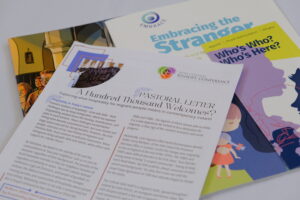 |
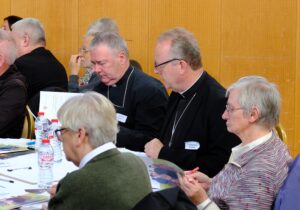 |
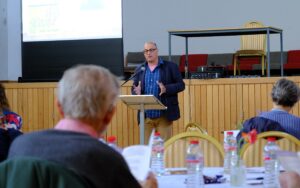 |
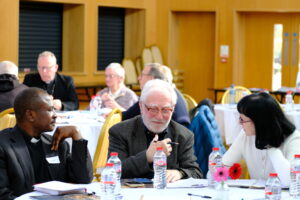 |
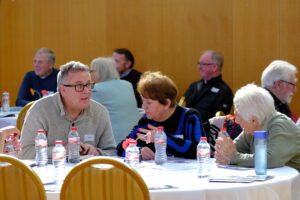 |
 |
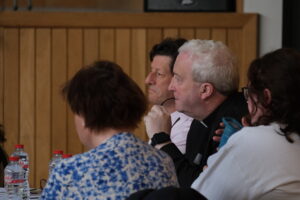 |
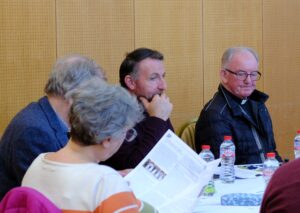 |
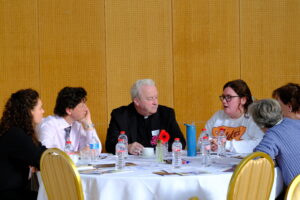 |
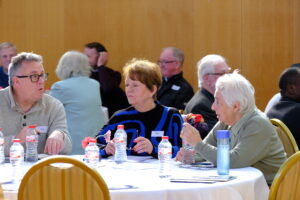 |
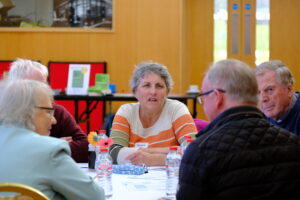 |
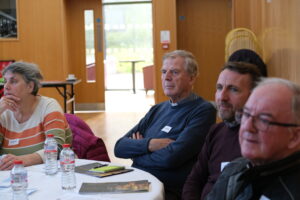 |
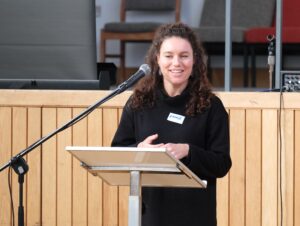 |
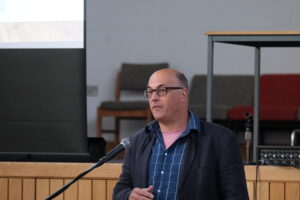 |
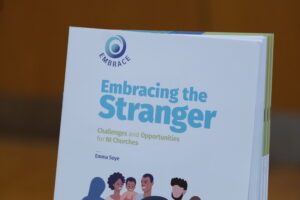 |
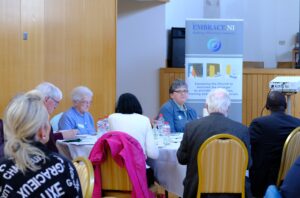 |



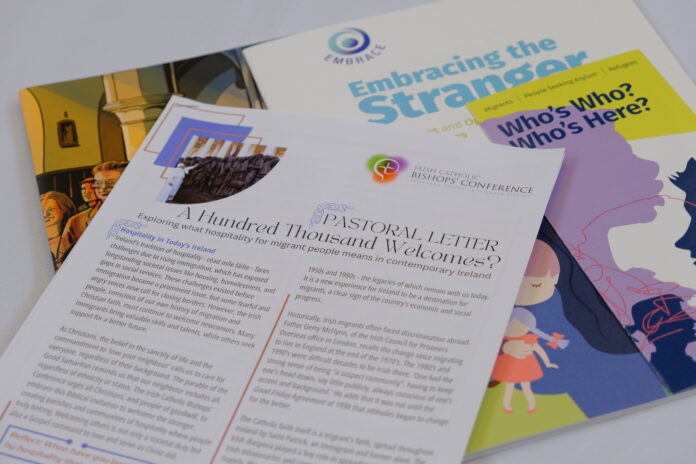
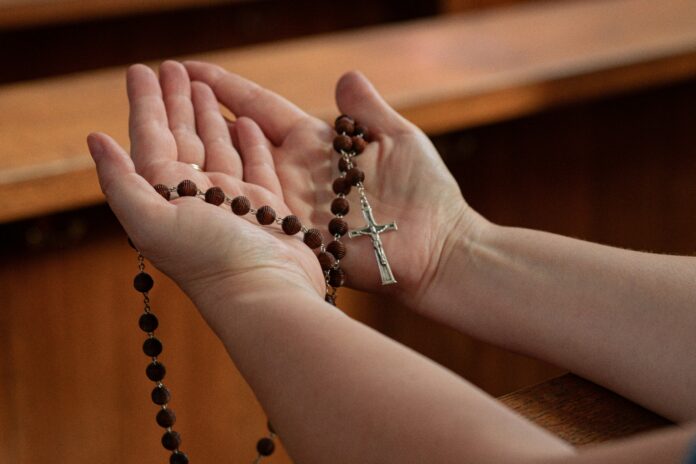
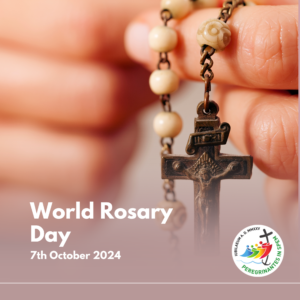 World Rosary Day will be marked by the recitation of the Rosary across the globe, creating a continuous wave of prayer that will span from the East to the West. The prayer begins at 7 PM in New Zealand, in the Maori territory of Ōtaki, where Fr. Phil Cody SM will lead his parishioners in reciting the Rosary in the Maori language. From there, the prayer will move across time zones.
World Rosary Day will be marked by the recitation of the Rosary across the globe, creating a continuous wave of prayer that will span from the East to the West. The prayer begins at 7 PM in New Zealand, in the Maori territory of Ōtaki, where Fr. Phil Cody SM will lead his parishioners in reciting the Rosary in the Maori language. From there, the prayer will move across time zones.

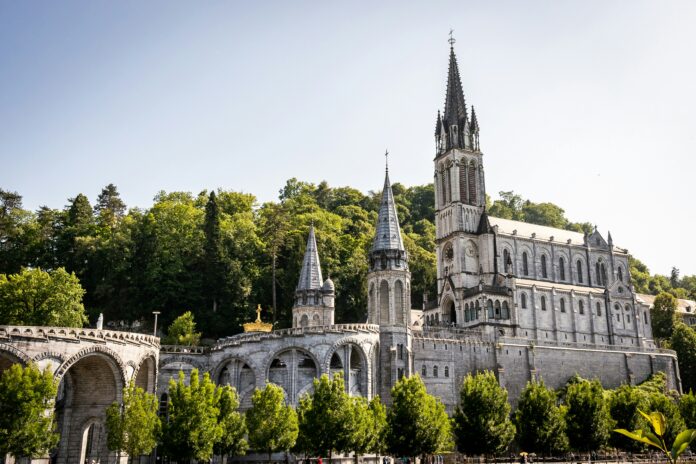
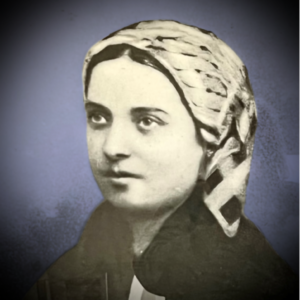 The opportunity to venerate Saint Bernadette’s relics in Ireland “will be a source of hope, great joy and inspiration” – Archbishop Martin
The opportunity to venerate Saint Bernadette’s relics in Ireland “will be a source of hope, great joy and inspiration” – Archbishop Martin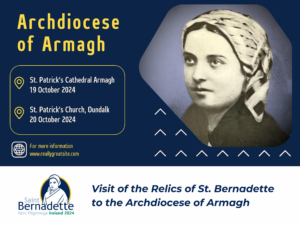
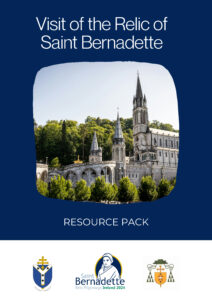
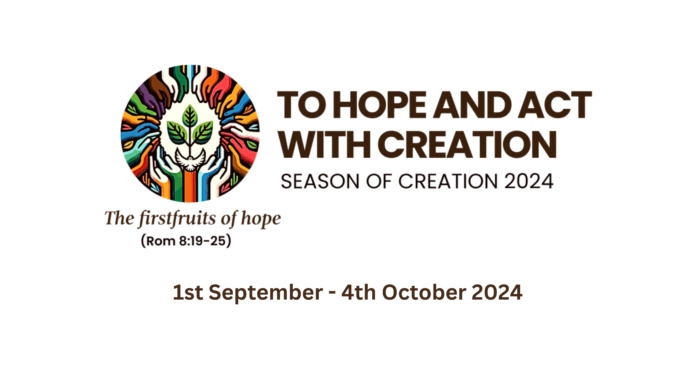

 Saint Patrick’s Pontifical College Maynooth are accepting applications for their Diploma in Church Music. The programme is suitable for those already involved in the ministry of church music in the Christian tradition, whether as organists, singers or choir directors.
Saint Patrick’s Pontifical College Maynooth are accepting applications for their Diploma in Church Music. The programme is suitable for those already involved in the ministry of church music in the Christian tradition, whether as organists, singers or choir directors.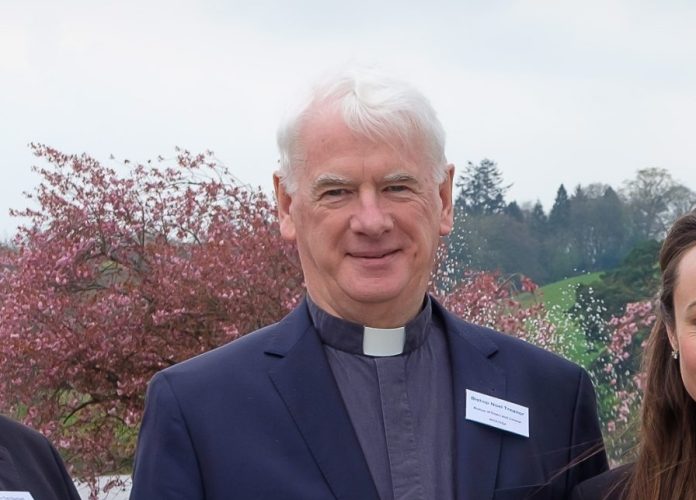
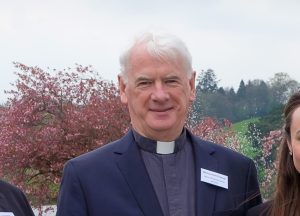

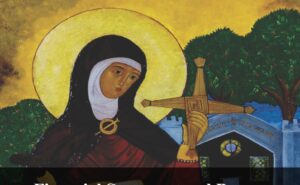 The Annual General Meeting of St Patrick’s Archdiocesan Trust Limited (Trust) was held on Wednesday, 11th December 2024, in which the Annual Report and Financial Statements for the year ended 31 March 2024 was presented. Presenting at the meeting were Archbishop Eamon Martin (Director of the Trust), Fr Colm O’Hagan (Diocesan Secretary), Mrs Brenda O’Hare (Financial Manager) and Mrs Roisin Traynor (Audit Manager – Cavanagh Kelly Accountants).
The Annual General Meeting of St Patrick’s Archdiocesan Trust Limited (Trust) was held on Wednesday, 11th December 2024, in which the Annual Report and Financial Statements for the year ended 31 March 2024 was presented. Presenting at the meeting were Archbishop Eamon Martin (Director of the Trust), Fr Colm O’Hagan (Diocesan Secretary), Mrs Brenda O’Hare (Financial Manager) and Mrs Roisin Traynor (Audit Manager – Cavanagh Kelly Accountants).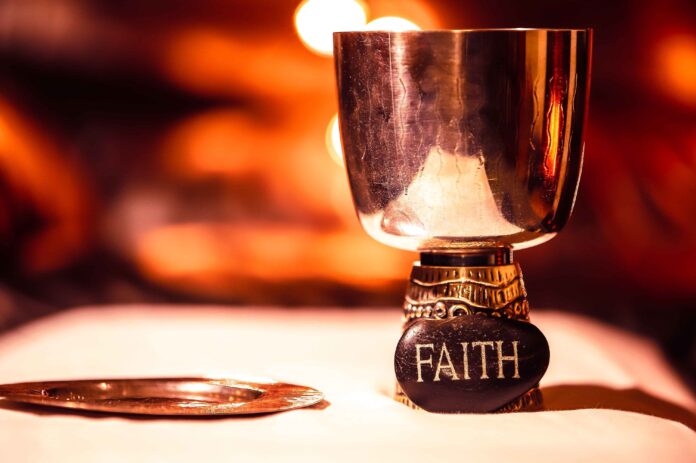
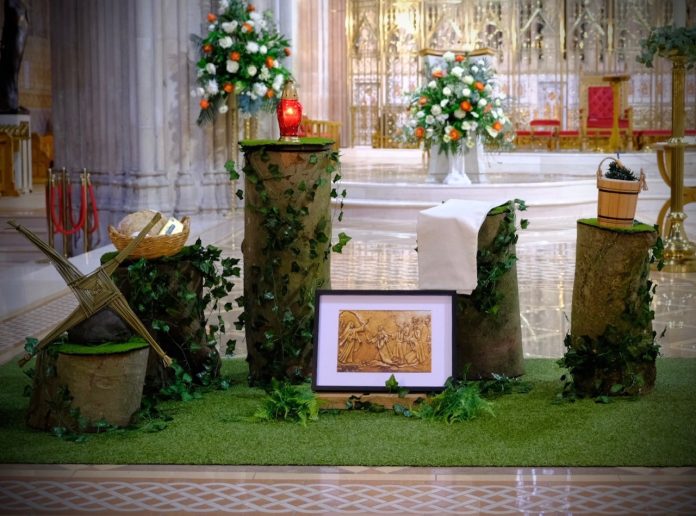
 On the evening of July 22nd, 2024, the Archdiocese of Armagh gathered in St. Patrick’s Cathedral for a Mass celebrating the Feast of St. Mary Magdalene. This special celebration was part of the yearlong celebrations marking the 1500th anniversary of the life and legacy of St. Brigid, a woman whose legacy of faith, strength, and compassion continues to inspire today. The evening was filled with warmth, gratitude, and joy, as women from across the Archdiocese of Armagh and the Diocese of Dromore came together to honor their significant contributions to the life and mission of the Church.
On the evening of July 22nd, 2024, the Archdiocese of Armagh gathered in St. Patrick’s Cathedral for a Mass celebrating the Feast of St. Mary Magdalene. This special celebration was part of the yearlong celebrations marking the 1500th anniversary of the life and legacy of St. Brigid, a woman whose legacy of faith, strength, and compassion continues to inspire today. The evening was filled with warmth, gratitude, and joy, as women from across the Archdiocese of Armagh and the Diocese of Dromore came together to honor their significant contributions to the life and mission of the Church.